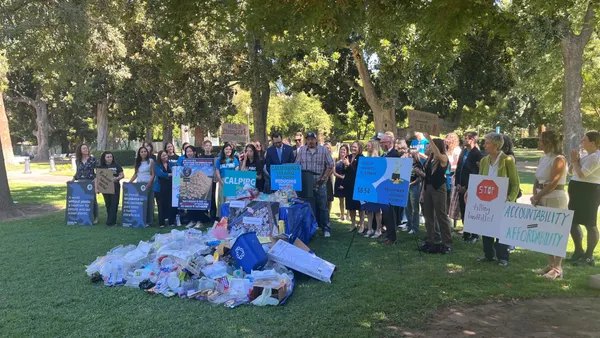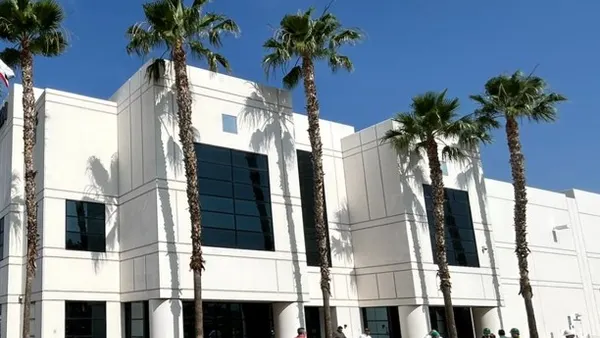Dive Brief:
- Minneapolis officials recently released a draft plan for "zero waste," as reported by the Southwest Journal. The plan calls for 50% of waste to be recycled or composted by 2020 and 80% by 2030, and comes packed with strategies and recommendations for achieving these goals. City officials are accepting feedback on the plan before it goes to city council vote on Nov. 3.
- The Minneapolis Division of Solid Waste & Recycling (SW&R) services around 106,000 residential dwellings, according to the plan. One of the city's approaches to increasing recycling and composting is to raise the price differential between 94-gallon and 32-gallon garbage carts. As it stands, the price difference is just $3, leading only 9% of Minneapolis households to use the small carts. The plan also calls for adjusting collection schedules, so that recycling and organics are collected more often than refuse collection.
- To grapple with the city's large commercial, industrial and multifamily (CIM) sectors, the plan calls for three approaches. First is "targeted generator outreach and assistance" for waste generators in the CIM sectors. The plan also calls for the city to consider making it mandatory that CIM generators maintain recycling plans and banning certain recyclable materials from refuse disposal. An additional approach is for Minneapolis to either expand hauler licensing with minimum service standards, transition to non-exclusive franchising or establish organized commercial collection. Currently, Minneapolis has a licensing program for haulers but does not require franchise agreements.
Dive Insight:
During a recent hearing in New York City, sanitation officials touted franchise zones as a potential game changer in reaching "zero waste" and top executives from Waste Management, Republic Services and Casella Waste Systems all agreed recently that pursuing franchise systems was a good strategy to increase revenue and achieve high recycling targets. In considering franchising as a tool to achieve waste diversion goals, Minneapolis appears to be in good company.
However, the city will need to be careful if it implements such a policy. RecycLA, the largest commercial franchising operation in the country, has lead to unexpected price hikes for customers, which resulted in an influx of angry constituent calls to the city council. In response, Los Angeles is asking LASAN to consider and research options like bin sharing to reduce the burden of cost. Minneapolis is only a fraction the size of Los Angeles, though, so it's possible that the city could be spared some of the unexpected burden that Los Angeles has faced.
If the city council approves the plan, Minneapolis would join the ranks of cities like New York, Boston and Philadelphia that are pursuing ambitious waste reduction goals. Minneapolis Mayor Betsy Hodges is proposing a plan for zero waste at an interesting time for the city — there's already been a reported high participation (with low volume) in the city's organics collection, and the county that Minneapolis is in is considering an organics diversion requirement. However, the city council recently canceled a vote on a bag fee. If city legislators perceive a "zero waste" plan to be as complicated as the 5-cent bag fee would have been, it could be some time before the city makes any changes to its diversion goals or hauling agreements.









